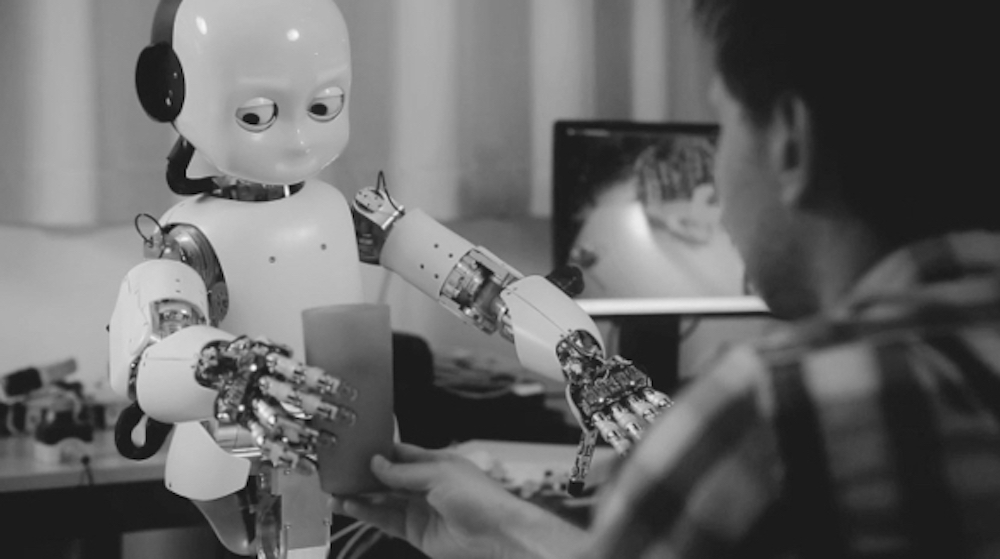Human Computer Interaction, to the max
Wed, Feb 14, 2018
Interfacing with computers is inevitable in today’s developed societies but what most people think of when asked about computer interaction is probably bashing the keyboard, one finger at a time, on a laptop or desktop or, for the more tech-savvy they may talk about phones and tablets. Less people talk about cars, TVs, airport ticketing machines, wearables, digital assistants like Alexa or Siri, even fridges, washing machines, and billboards. A small but increasingly vocal subset talk about a new generation of computing that will revolutionise the definition of computers and even humanity.
You see, as a species we are on a path towards more and more technology entering our lives. Digital this and electronic that; football matches are being decided by technology, AI is predicting when people are likely to die, transportation is increasingly automated, and that is only the start of it. When peripherals like your mobile phone or smart glasses become, well, less peripheral, the whole debate about how technology is shaping mankind starts to heat up. Enter Hollywood.
For several decades now technology gone awry has been the villain and an apocalyptic future has put bums on seats at many a cinema but often these futuristic predictions are based on a solid, if not warped foundation. Take for example Dan Brown’s latest novel, Origin which, without giving away too many spoilers explores the potential fate of humanity, hint: it involves a human/technology twist. Hollywood examples include the popular and lucrative Terminator franchise that depicts a world where humanity is on the brink of extinction due to a meld of synthetic intelligence and robotics that even lead to news outlets asking How close were the Terminator films to reality? Phillip K Dick, a popular futurist author had a similar theme throughout several of his books and again, it was based around an advanced computer intelligence and some form of physical manifestation. Fast forward 34 years (in the case of the original Terminator movie) and we have examples of robotics that not only look like those depicted in the movies but also behaviour eerily similar. Just this week Boston Dynamics put out a video of a robot ‘dog’ that reminded me of scene from Jurassic Park where a Velociraptor opens a door in the pursuit of it’s prey. The new dystopian series from Netflix, Altered Carbon, itself an interpretation of a novel by Richard K Morgan goes further and depicts a future full of implantable and replacement technology as part of the human species itself, a point driven home by Dan Brown in his book.
Again just this week, popular futurist Dr Ian Pearson put out a blog post detailing his thoughts on the whole technology + human debate which, while full of superlatives and speculation is as accurate as many of the futuristic ideas from decades ago that are coming to fruition now. The idea that a “superhuman” will become a reality in little more than two decades, melding brain and device technology that “relays signals between your organic brain and an IT replica, but by doing so essentially makes external IT just another part of your brain” bodes well for Richard K Morgan’s idea of brain cortical stacks and paves the way for “trillions of AI and human-like minds in cyberspace”. Conversely, as humans evolve so too will our AI counterparts that will become “Super-smart AI or humans with almost total capability to design whatever synthetic biology is needed to achieve any biological feature”. In short, the lines between computers and humans will inevitably blur. Even popular future-thinker and entrepreneur Elon Musk, who publicly stated that there is a 90% chance we get AI wrong, is advocating that we embrace rather than eliminate AI but urges caution at the same time. The definition of Human Computer Interaction (HCI) will take on a new meaning in the next two decades. It will not be about how we physically touch, swipe, and tap a device, or even wear a peripheral, but more about how technology is interfaced within the human body, the term HCI will be more accurately about Human Computer Integration.
So, what will Human Computer Interaction look like in the future? I think the answer lies in a question, what is the future of humanity as we incorporate more and more technology into our very being? That question is much more interesting.


